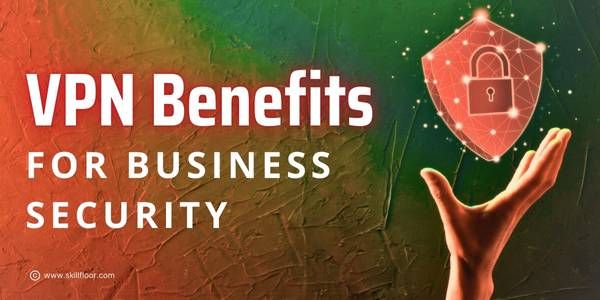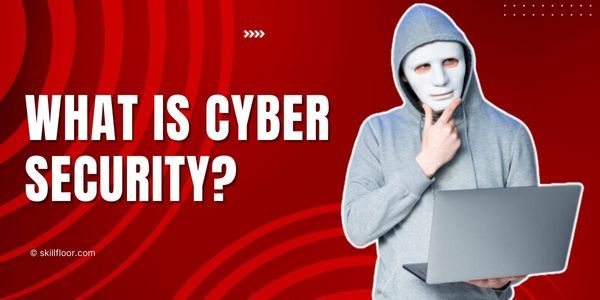VPN Benefits for Business Security
How VPNs protect business data, ensure secure remote access, and guard against cyberattacks. Learn why every business needs a VPN for enhanced security.

Today, businesses of all sizes face increasing threats to their online security. Cyberattacks and data breaches can lead to the loss of important information, secrets, and customer trust. As companies depend more on the internet for their work, VPNs (Virtual Private Networks) have become a key tool for protecting their online activities and keeping data safe.
Why Businesses Need Strong Security
Every day, businesses handle massive amounts of sensitive information, including customer data, financial details, and intellectual property. The internet is an essential tool for operations, but it also opens businesses up to cyber criminals who are looking to exploit vulnerabilities. The risks are real: ransomware attacks, phishing scams, and data breaches are just a few examples of the dangers that businesses face daily.
The rise of remote work has added another layer of complexity to security. While remote work offers flexibility, it also exposes businesses to unprotected networks. Employees working from coffee shops, airports, or other public places may unknowingly connect to insecure Wi-Fi networks, making their devices—and your company’s data—vulnerable. This is where a VPN can help.
What is a VPN?
A VPN (Virtual Private Network) creates a secure, encrypted connection between a device (like a computer, smartphone, or tablet) and the company’s network. This connection makes it nearly impossible for hackers or unauthorized parties to access sensitive data. When you use a VPN, it’s as though you’re creating a private “tunnel” through the public internet, where your data is safe from prying eyes.
For businesses, this means employees—whether they are in the office or working remotely—can securely access company resources like internal servers, databases, and files without compromising the organization’s security.
VPN Benefits for Business Security
1. Data Encryption: Protecting Sensitive Information
The biggest benefit of a VPN is data encryption. Encryption is the process of scrambling data so that it can’t be read by anyone other than the intended recipient. Without a VPN, data sent over the internet can be intercepted by hackers who can then read or steal that information.
For businesses, this means that whether employees are sending emails, making online transactions, or sharing company files, the data is encrypted and kept safe. For example, employees working remotely from public Wi-Fi networks (like those in coffee shops or airports) are at risk of having their data intercepted. But with a VPN, that data is encrypted, making it nearly impossible for hackers to read or steal.

2. Secure Remote Access
As the world moves toward remote work, businesses need solutions that allow employees to securely access company resources from anywhere. A VPN enables employees to connect to the company’s internal network from any location as if they were in the office. This is essential for businesses that have remote workers or travel frequently. According to Cybernews, using a VPN for travel is one of the most effective ways to protect sensitive data when connecting to public Wi-Fi in airports, hotels, or cafés.
For example, consider a marketing team that needs access to internal tools, databases, and sensitive client information while working from home or on business trips. A VPN ensures they can safely access everything they need, without risking a data breach.
3. Protection from Cyberattacks
Businesses face various types of cyberattacks, including DDoS (Distributed Denial of Service) attacks, man-in-the-middle attacks, and phishing scams. VPNs protect against these attacks by hiding your company’s IP address and encrypting communications.
In a DDoS attack, hackers flood a company’s network with fake traffic, causing the system to crash. By masking the company’s IP address, a VPN makes it harder for attackers to target the right network resources.
In a man-in-the-middle attack, hackers intercept communication between two parties to steal or alter the data being transferred. By encrypting communication, a VPN ensures that hackers can’t tamper with it.
4. Privacy and Anonymity
A VPN also provides privacy and anonymity. When you connect to the internet without a VPN, your IP address is visible to anyone you interact with online. This can lead to tracking by advertisers, hackers, and even competitors. A VPN hides your IP address, making it difficult for anyone to trace your online activities.
This is particularly important for businesses that deal with sensitive client or customer data. For instance, law firms, healthcare providers, or financial institutions that handle private information can protect their clients' privacy by using a VPN.
5. Overcoming Geo-Restrictions
Many online services are only available in certain regions or countries. VPNs allow businesses to bypass geo-restrictions by routing their internet traffic through servers in different locations. This gives businesses access to resources that may be blocked or restricted in their country.
For example, an employee based in a country where certain cloud tools are blocked can use a VPN to connect to a server in another country and access those resources. This flexibility is crucial for global teams or businesses that rely on international resources.
6. Helping with Regulatory Compliance
Many industries—such as healthcare, finance, and e-commerce—must comply with strict data protection laws. Regulations like GDPR (General Data Protection Regulation) in Europe and HIPAA (Health Insurance Portability and Accountability Act) in the U.S. require businesses to protect sensitive customer information.
By using a VPN, businesses can ensure that data is encrypted during transmission, which is a key requirement for compliance. For example, if your company is handling personal data, a VPN helps demonstrate that you are taking steps to secure this information as required by law.
Applications of VPNs in Business
While VPNs are mostly used for secure remote access, they have several other important applications within a business environment:
-
Secure Communication: Encrypting emails and messages ensures that sensitive conversations remain private.
-
Financial Transactions: VPNs secure online payments and protect credit card details from fraud.
-
Intranet Access: Employees can access internal company resources securely, even when working remotely.
-
Protecting Intellectual Property: Companies that deal with proprietary information can use VPNs to prevent unauthorized access to their valuable data.
Potential Drawbacks of VPNs
While VPNs offer significant security benefits, there are some drawbacks to consider:
-
Slower Internet Speeds: Because VPNs encrypt and reroute traffic through secure servers, they can sometimes slow down internet speeds. This can be frustrating, especially for businesses that rely on high-speed internet for tasks like video conferencing or cloud-based tools.
-
Setup Complexity: For businesses that lack in-house IT expertise, setting up and maintaining a VPN can be complicated. You may need to hire an IT professional to ensure that the VPN is properly configured and secured.
-
Compatibility Issues: Some websites or applications may not work well when accessed through a VPN. It’s important to test the VPN to make sure everything is compatible with your business’s software and services.
Choosing the Right VPN Provider
When choosing a VPN provider for your business, especially to protect against cyber threats, it's important to keep these points in mind:
-
Security Features: Make sure the VPN uses strong encryption to protect your data, such as AES-256. Good security protocols like OpenVPN, IKEv2, or WireGuard will help protect your business from hackers and keep your information safe.
-
Server Locations: Choose a VPN with servers in multiple countries. This gives your business more flexibility and the ability to securely access resources from around the world. It also helps your business stay safe by avoiding cyber threats from specific regions.
-
Reliability and Speed: It's essential to pick a VPN that works well and doesn't slow down your internet too much. Slow internet can be a big problem for businesses that need to access files or communicate in real time. The VPN should keep your business running smoothly without any interruptions.
-
Customer Support: Look for a VPN provider that offers 24/7 support. If you run into any issues with the VPN, quick help is crucial. Good support can make a big difference, especially when your business needs to stay protected from cybersecurity threats.
-
Cost: While there are free VPN options, they may not offer the best protection. It's often worth paying for a good VPN, as paid services provide better security features, faster connections, and more reliable protection against online threats.
By considering these factors, you can choose a VPN that will help keep your business secure from cybersecurity threats while providing the tools needed to keep operations running smoothly.
Case Study: How VPNs Protected a Global Financial Institution
A large global financial institution, let’s call it FinanceCo, uses VPNs to ensure that all its employees—whether in headquarters, regional offices, or working remotely—have secure access to company resources. FinanceCo is subject to strict GDPR, which means it must safeguard client data and ensure that all communications are encrypted.
One example of how the VPN protected the company occurred when a group of remote employees was traveling in a foreign country. While accessing sensitive financial data from a public Wi-Fi network, their VPN encrypts all data being sent, preventing potential hackers from intercepting their transactions. This not only ensured the security of the company’s financial information but also helped maintain trust with clients, who rely on the company to protect their sensitive data.
Another key benefit FinanceCo enjoyed from using a VPN was regulatory compliance. The company’s VPN ensured that all data transmitted between its offices in different countries was encrypted, helping it meet compliance with both GDPR and HIPAA (for the healthcare clients it services).
Why Your Business Needs a VPN
Using a VPN for business security offers many clear benefits: it protects sensitive data, ensures secure remote access, shields your company from cyberattacks, and helps maintain privacy and regulatory compliance. While there are some potential downsides, such as slower internet speeds and setup complexity, the advantages of using a VPN far outweigh these challenges.
Businesses that prioritize security—whether they’re dealing with customer data, intellectual property, or online financial transactions—should consider implementing a VPN. The peace of mind that comes with knowing your data is protected is invaluable, and a VPN can help you achieve that security.
If you haven’t already set up a VPN for your business, now is the time to do so. Take the necessary steps to safeguard your company’s future in an increasingly connected and dangerous digital world.































































